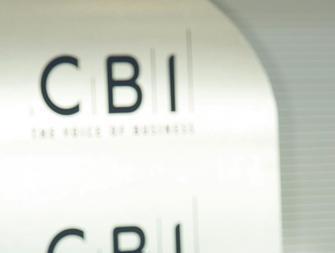CEO Interview: Jean-Paul Rignault, AXA Corporate Solutions
What is the current situation within the French insurance market?
After four years of significant price decreases we are seeing a slight upturn or at least a flattening out in the pricing cycle.
The evolution is already visible in marine and aviation lines where there is a medium increase in pricing. This is not the brutal levels we saw in 2001/02 but it is a change in the market. We expect an increase of between 0 % and 5 % in marine premiums and 0 % and 15 to 20% in aviation.
On other property and casualty lines, we have reached the end of significant, across the board decreases. For that reason, AXA Corporate Solutions (CS) won’t be writing any new property business on the French market at the January 2009 renewals. We have taken this decision because we think that we have touched the bottom of the cycle. Writing new business now would destroy value. AXA CS is writing new business in other lines, such as liability, construction and motor, where the market conditions, such as price, are still adequate.
With Directors & Officers (D&O) it is time to stop decreasing price and at the same time expanding warranties and coverage. To continue to consider D&O as a viable line of business insurers have to be extremely cautious on the type of business they contract.
AXA CS is in the process of building an alternative offer. It will take a few weeks to be in a position to be more active on the D&O market. We are definitely interested in developing that line of business. Obviously, bearing in mind recent events, some insurance buyers have decided to look for alternative quotes. For the time being we are reconsidering our underwriting policy in order to build an alternative long-term solution for our clients.
All in all we are predicting at the January renewals a stabilisation in the pricing cycle and the upturn to occur during the course of 2009. That is good news for insurance companies because to be of service to clients in the long run the price has to be adequate.
At AXA we prefer this kind of slow and measured reaction rather than a brutal phase of hardening.
How is the economic slowdown affecting your business?
“AXA CS is continuing to invest in developing its business
There are two key areas. First there is an impact on the volume of business. The recession affects the amount of business we can do with our clients, because they are affected themselves by the slowdown.
With lower international trade, there are fewer goods being transported, airlines are carrying fewer passengers and scheduling less flights, large corporations are slowing down their investments in new factories, all such collateral effects from the economic recession are reducing the amount of insurable values and consequently the premium volume generated by insurers.
The second point is that with financial turmoil and stocks falling there is less opportunity for insurers to add significant investment income to balance their operations. In that way the financial crisis brings much more attention on underwriting discipline. To remain profitable in the long run underwriters will have to focus on technical profitability.
And how are you responding to these market difficulties?
The AXA Group strategy has been to focus exclusively on its core business meaning insurance and asset
management. AXA has not diversified into other financial operations. In that way our business model is different to some of our competitors and we have avoided most of the problems they encountered.
In today’s difficult environment, the quality of the financial security provided by an insurance partner is one of the key differentiators. At AXA we are extremely well positioned in that respect. Our balance sheet is solid and our financial ratings are positive with a AA range and stable outlooks. (AA with S&P, Moody’s Aa3 and Fitch AA). Standard & Poor’s reaffirmed very recently not only AXA Group’s solid financial strength but also its ‘excellent’ Enterprise Risk Management.
The other key element for differentiating from our competitors lies clearly in our people and their attitudes towards clients, brokers and other business partners. At AXA, we are focusing on three ‘core attitudes’ which must be part of each and every staff member’s body and soul: being Available, Attentive and Reliable. In this ever changing environment, we need to be there when our customers need us and we must listen to them, truly. We must treat our customers with empathy and consideration and provide personalised advice. We must say what we do and do what we say, we must deliver and keep our customers informed, so that they can trust us. In short, we must redefine our standards to turn this crisis into an opportunity and differentiate us from our competitors.
What new risks are being created as a result of the financial turmoil?
“The financial crisis brings much more attention to underwriting discipline
In a recession phase factories, for example, are not being run at 100 % of their capacity, that means staff are not monitoring the facility 24/7. Therefore, we can assume that there might be a tendency towards more frequency and perhaps more intensity claims.
In tough times, more businesses find themselves in financial difficulties and may go into bankruptcy. We will also see more frequency and intensity of D&O risks over the coming months. During this period we will also see more fraud and leakage.
I am confident in the economists’ predictions that the world will start to walk out of this recession at the end of 2009 or at the beginning of 2010. Most governments in Europe and the US are doing the right things to re-launch economic growth and hopefully these efforts will pay off. However, visibility remains a key issue.
How do you expect your clients’ risk management efforts to be affected by the downturn?
Our clients make significant investments in risk management and loss prevention. As budgets are cut they may be pushed to invest less in this side of the business. But I’m sure that they will continue with their efforts. I do not expect a significant deterioration in risk quality during the recession. No one can afford to have a big loss because it is even more difficult in tough times to recover.
For our part, AXA CS is continuing to invest in developing its business in IT, in HR, in our international network. We plan to grow the number of risk engineering consultants from 100 to 150 by the end of 2012. And we continue to expand overseas to follow our clients. In 2008, we opened three new branches in Switzerland, Singapore and Hong Kong.
Finally, what does Solvency II mean for the French market?
The Solvency II regulations are a good move with one clear consequence. Generally speaking, to conduct the same business insurers will need to allocate more capital. As a result, capital allocation will be of greater importance and under even more scrutiny.
For risk managers, Solvency II will put additional pressure on captives. It may lead CFOs to reconsider where they are investing their capital. Do they want to invest in business development, research and expansion in new countries, or increasing the surplus of their captive?
Companies will have to make a choice as well because Solvency II will make captives much more capital consuming than they used to be. Risk transfer by way of insurance will remain a relatively cheap option.


















No comments yet